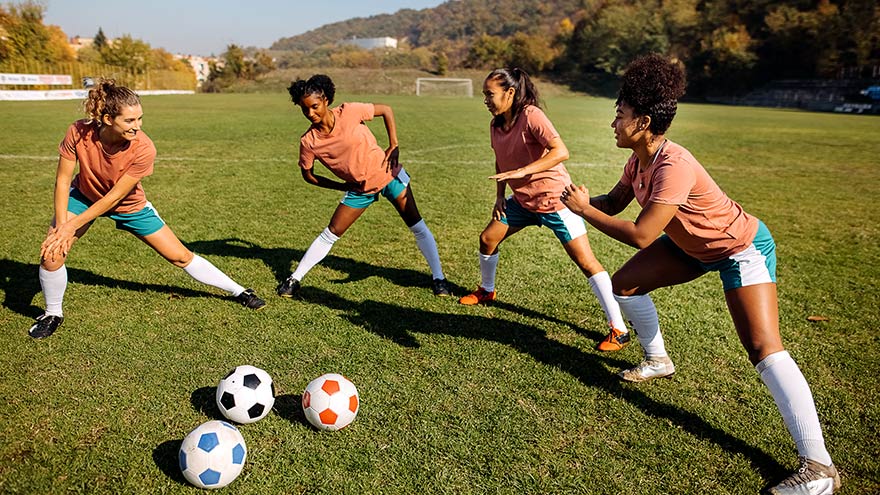Buscar
-
Why Your Teen Athlete Should See a Sports Medicine Doctor
Seeking specialized care for your teen from a sports medicine doctor is essential. Like a coach fine-tunes a player's skills, our experts fine-tune your teen's health, ensuring they stay at the top of their game. Luis Palacio, MD, a sports medicine physician with Renown Health, shares information to help young athletes safely push their boundaries and achieve their personal best. The Role of Sports Medicine Sports medicine is a specialized branch of healthcare that focuses on preventing, diagnosing and treating injuries related to physical activity and sports. Renown's Sports Medicine team consists of skilled professionals passionate about keeping young athletes performing at their peak while minimizing the risk of injury. With a comprehensive approach to care, our sports medicine doctors provide tailored guidance and solutions to help your teen reach their full potential. Injury Prevention and Education Prevention is the key to maintaining a long and successful athletic journey. Our sports medicine doctors collaborate with young athletes to educate them about proper warm-up techniques, body mechanics, and techniques to prevent overuse injuries. From understanding the importance of rest days to practicing correct form, our experts empower teen athletes with the knowledge they need to stay in the game.
Read More About Why Your Teen Athlete Should See a Sports Medicine Doctor
-
How to Manage and Prevent Tendonitis
Tendonitis occurs when a tendon in your body is inflamed or irritated. This painful condition can impact your day-to-day activities, but can be managed and prevented. Luis Palacio, MD, shared some insights into how to manage tendonitis. Overuse and Repetitive Motion Tendons are complex tissues in our body that connect muscles to bones, allowing us to move. Unfortunately, sometimes these tendons become inflamed, worn down or injured, a condition called tendonitis. Symptoms of tendonitis include pain or dull ache, tenderness and mild swelling at the site. While tendonitis can be caused by a sudden injury, it is more commonly seen in frequent motions, including: Repetitive motions in exercise, work or other physical activities. Awkward positions in a movement, including poor posture. Forced movements that strain your body. Sudden increase in frequency of movement or level of difficulty, including little to no recover time between new activity. Shoes without proper support or hard surfaces, such as concrete floors. Evaluation is Key If you suspect that you have tendonitis and it does not resolve on its own after a few days, you should get it evaluated by a primary care or sports medicine doctor. They can make recommendations to aid your recovery and refer you to the right sub-specialist if needed. With some intentional actions, you can help reduce the risk of tendonitis with the following suggestions: Add variety: Mixing up the type of exercise you do will help prevent repetitive motions that can result in overuse. Stretch and condition: Make sure the keep up with proper stretching and muscle strengthening to support your physical activities. Do it right: Make sure that the way you are completing exercise or work-related physical activities is correct. Seek out a professional for lessons or guidance if you are unsure.

